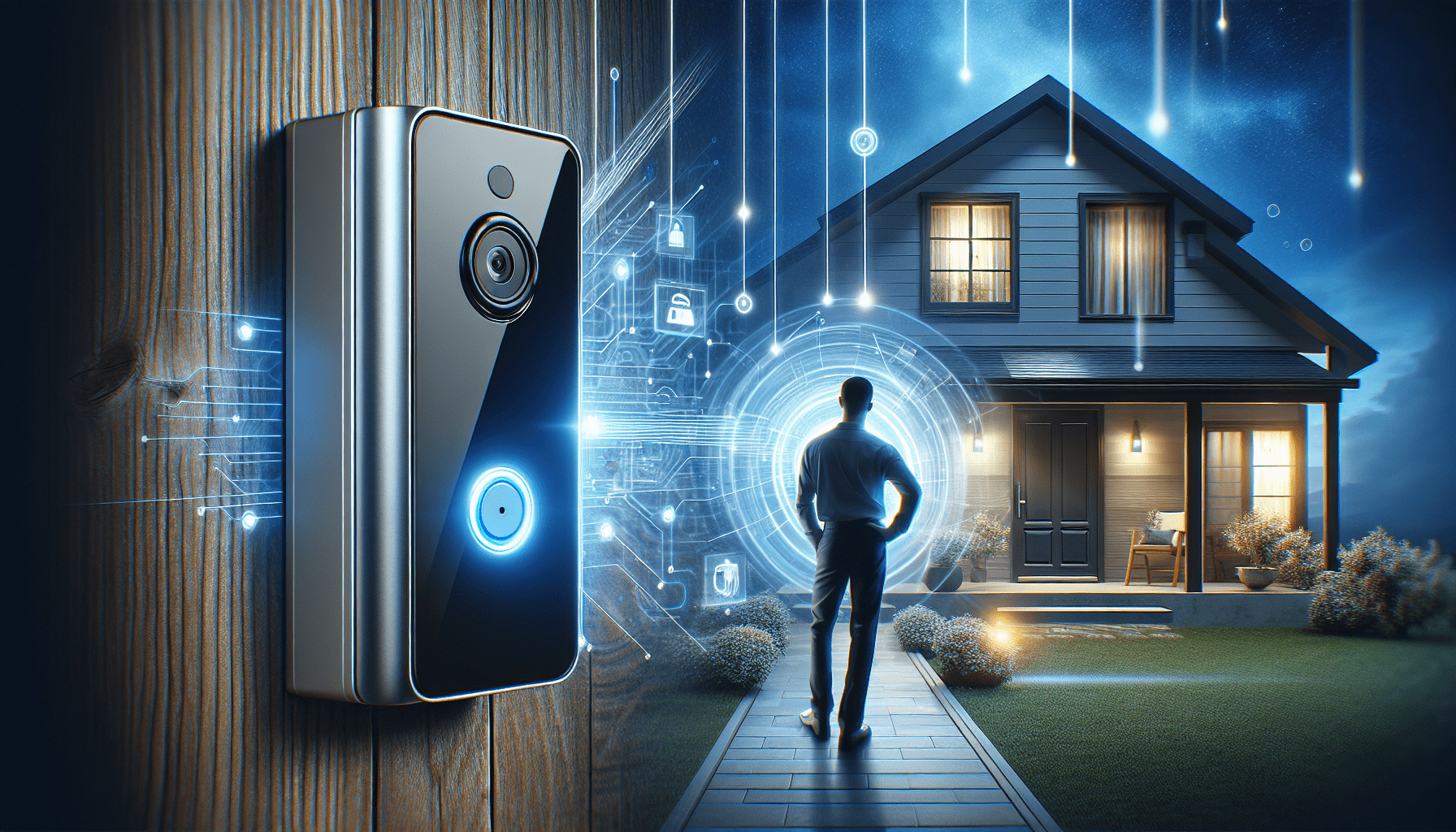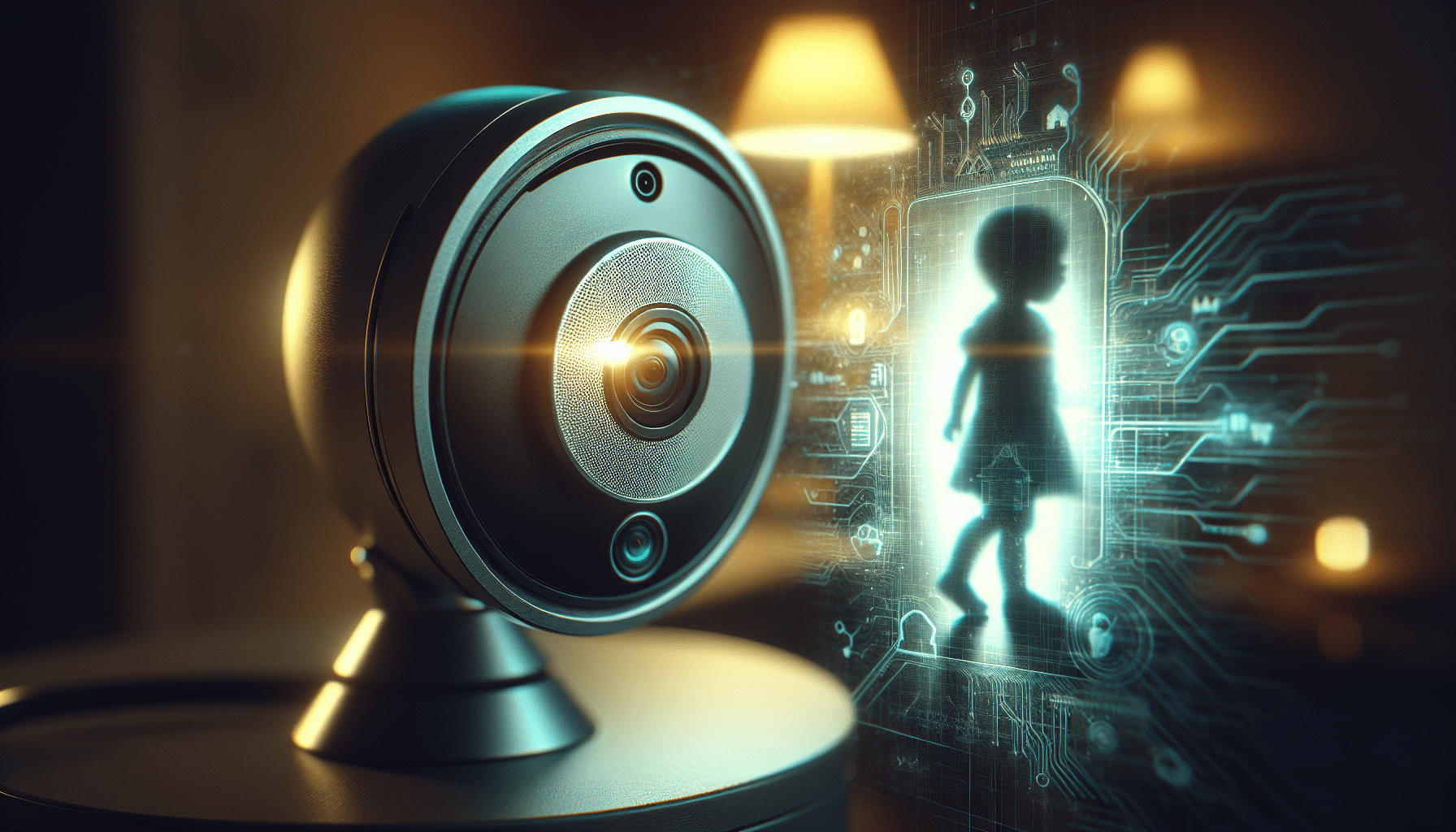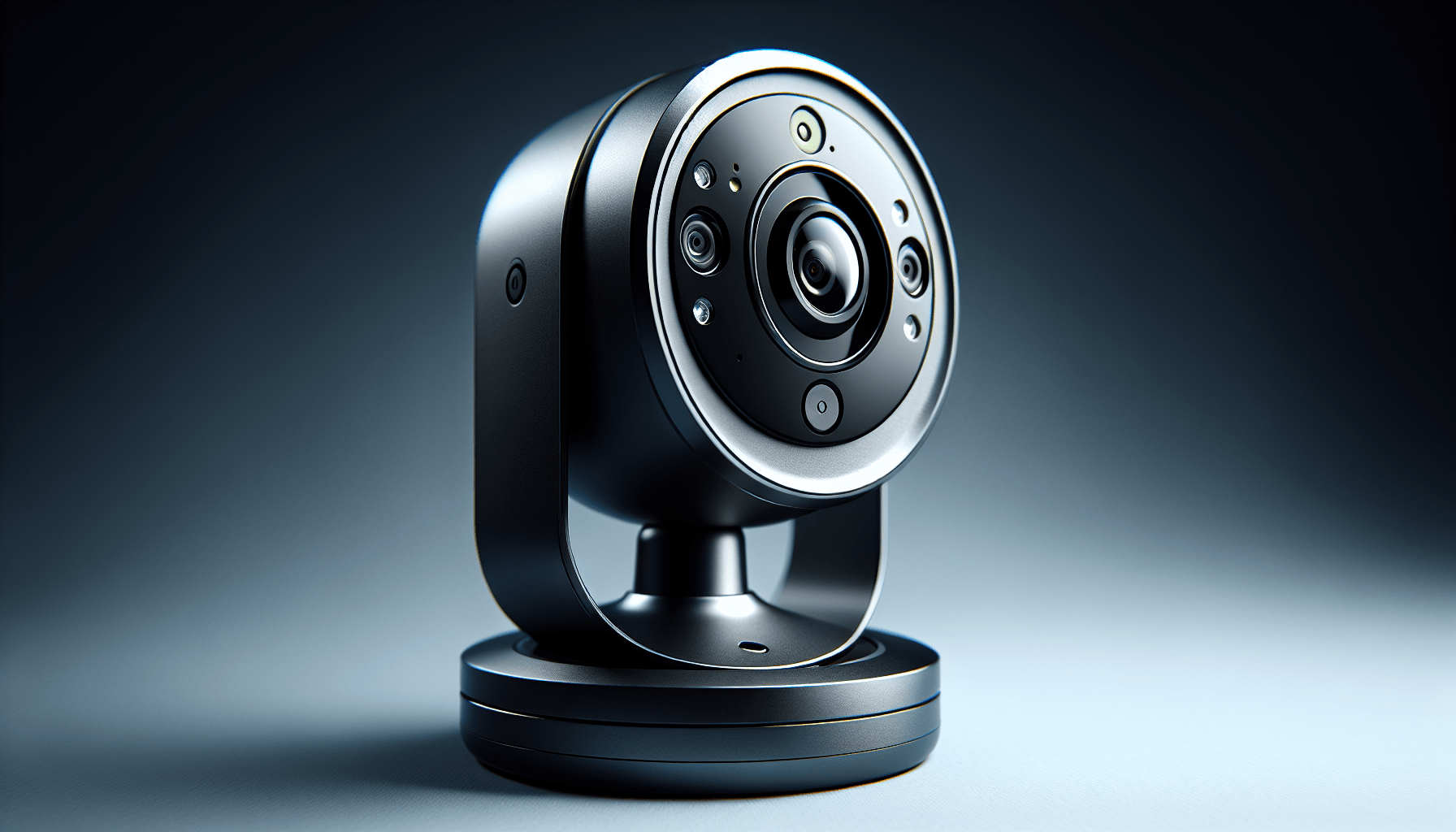Welcome to an exciting time in the world of smart home security technology! From advanced facial recognition systems to integrated mobile apps, there are endless possibilities to safeguard your home in the most convenient and efficient ways. Stay ahead of the curve and explore the latest trends that will revolutionize the way you protect your loved ones and valuables. What Are The Latest Trends In Smart Home Security Technology?
With the rapid advancements in technology, smart home security systems have become more innovative than ever before. From facial recognition to voice control, the latest trends in smart home security technology offer homeowners a wide range of options to protect their properties. In this article, we will delve into the most recent developments in smart home security technology and explore how they can help enhance the safety and security of your home.
Facial Recognition Technology
Facial recognition technology has quickly become a popular feature in smart home security systems. Facial recognition allows homeowners to identify who is at their doorstep without having to open the door. This technology can also be used to grant access to specific individuals while restricting entry to unauthorized persons.
How does facial recognition technology work?
Facial recognition technology uses algorithms to analyze the unique features of a person’s face, such as the distance between their eyes, nose, and mouth. When someone approaches your home, the system scans their face and compares it to a database of known faces. If there is a match, the system will notify you of the person’s identity.
Benefits of facial recognition technology
- Enhanced security: Facial recognition technology provides an extra layer of security by allowing you to verify the identities of individuals entering your property.
- Convenience: You can unlock doors or gates with just a glance, eliminating the need for keys or access codes.
- Customization: Facial recognition technology allows you to set access permissions for different individuals, giving you control over who can enter your home.
Voice Control Integration
Voice control has become increasingly popular in smart home security systems, allowing homeowners to control their security devices using voice commands. With voice control integration, you can arm or disarm your security system, lock doors, and even communicate with visitors using voice commands.
How does voice control integration work?
Voice control integration uses artificial intelligence (AI) technology to understand and respond to voice commands. By using voice-activated devices, such as smart speakers or virtual assistants, you can control various aspects of your smart home security system.
Benefits of voice control integration
- Hands-free operation: With voice control integration, you can control your security system without having to physically interact with any devices.
- Accessibility: Voice control technology makes it easier for individuals with mobility issues or disabilities to manage their security systems.
- Enhanced user experience: Voice control integration offers a more convenient and intuitive way to interact with your smart home security devices.
Smart Video Doorbells
Smart video doorbells have become a staple in smart home security systems, providing homeowners with real-time video monitoring of their front doors. With features such as two-way audio communication, motion detection, and cloud storage, smart video doorbells offer enhanced security and convenience.
How do smart video doorbells work?
Smart video doorbells use built-in cameras to capture video footage of your doorstep. When someone approaches your door, the motion sensor triggers the camera to start recording, allowing you to see who is outside your home in real time. You can also communicate with visitors using the two-way audio feature.
Benefits of smart video doorbells
- Deterrence of potential intruders: Smart video doorbells act as a deterrent to potential intruders by providing visible surveillance of your front door.
- Remote monitoring: With smart video doorbells, you can monitor your front door from anywhere, giving you peace of mind when you are away from home.
- Package theft prevention: Smart video doorbells allow you to see and communicate with delivery personnel, preventing package thefts.
Wireless Security Cameras
Wireless security cameras have revolutionized home security by offering homeowners flexible and easy-to-install surveillance solutions. With features such as high-definition video quality, night vision, and mobile app integration, wireless security cameras provide reliable monitoring of your property.
How do wireless security cameras work?
Wireless security cameras use Wi-Fi connectivity to transmit video footage to a mobile device or cloud storage. These cameras are easy to install and can be placed indoors or outdoors to monitor various areas of your property. Some models also offer advanced features like facial recognition and object detection.
Benefits of wireless security cameras
- Easy installation: Wireless security cameras are easy to install without the need for complex wiring or professional installation services.
- Remote monitoring: You can access live video feeds from your wireless security cameras using a mobile app, allowing you to monitor your property from anywhere.
- Customization: Wireless security cameras come in a variety of models with different features, allowing you to choose the best option for your specific security needs.
Smart Locks
Smart locks are a convenient and secure way to enhance the security of your home by replacing traditional door locks with technologically advanced access control systems. With features such as keyless entry, remote access, and activity logs, smart locks offer homeowners peace of mind and control over their home security.
How do smart locks work?
Smart locks use wireless technology, such as Bluetooth or Wi-Fi, to connect to a mobile device or smart home hub. You can lock or unlock your door remotely using a mobile app, assign virtual keys to guests, and receive notifications when someone enters or exits your home. Smart locks also offer additional security features like tamper alerts and auto-locking.
Benefits of smart locks
- Keyless entry: Smart locks eliminate the need for physical keys, making it easier to enter your home without worrying about lost or stolen keys.
- Remote access: With smart locks, you can control access to your home from anywhere using a mobile app, giving you peace of mind when you are away.
- Integration with smart home systems: Smart locks can be integrated with other smart home devices, allowing you to create a seamless and interconnected home security system.
Artificial Intelligence (AI) Security Systems
Artificial intelligence (AI) has revolutionized smart home security systems by providing advanced features like predictive analytics, facial recognition, and behavior analysis. AI security systems use machine learning algorithms to analyze data and make intelligent decisions to enhance the safety and security of your home.
How do AI security systems work?
AI security systems use machine learning algorithms to analyze large amounts of data from various sensors and devices in your smart home. These systems can detect patterns, identify anomalies, and predict potential security threats based on historical data. AI security systems continuously learn and adapt to improve their effectiveness over time.
Benefits of AI security systems
- Enhanced threat detection: AI security systems can detect and respond to security threats more effectively than traditional security systems.
- Adaptive security measures: AI security systems can automatically adjust security settings based on changing conditions, providing an adaptive and proactive approach to home security.
- Personalized security solutions: AI security systems can learn your habits and preferences to provide personalized security solutions tailored to your specific needs.
Home Automation Integration
Home automation integration allows homeowners to connect and control a wide range of smart home devices, including security systems, lighting, thermostats, and more. By integrating your smart home security system with other automation devices, you can create a seamless and interconnected home environment that enhances convenience and security.
How does home automation integration work?
Home automation integration uses a central hub or mobile app to connect and control various smart home devices. By creating automation routines and schedules, you can automate tasks like arming your security system, adjusting lighting settings, and controlling temperature levels based on your preferences or specific events.
Benefits of home automation integration
- Convenience: Home automation integration allows you to control multiple smart home devices using a single interface, simplifying the management of your home.
- Energy efficiency: By integrating your security system with other smart devices, you can optimize energy usage and reduce utility costs.
- Customization: Home automation integration enables you to create personalized automation routines to fit your lifestyle and enhance the functionality of your smart home.
Cloud-Based Security Solutions
Cloud-based security solutions have become increasingly popular in smart home security systems, offering homeowners secure and reliable storage for their surveillance footage and data. By storing data in the cloud, homeowners can access and manage their security system remotely, without the need for on-site storage devices.
How do cloud-based security solutions work?
Cloud-based security solutions use remote servers to store video footage, access logs, and other data from your smart home security system. You can access this data through a secure online portal or mobile app, allowing you to view, download, and share information with ease. Cloud storage also provides redundancy and backup in case of system failures or data loss.
Benefits of cloud-based security solutions
- Remote access: Cloud-based security solutions allow you to access your security system data from anywhere, providing flexibility and convenience.
- Scalability: Cloud storage can accommodate large amounts of data and scale with your security system as it grows, without the need for additional on-site storage devices.
- Data security: Cloud storage providers offer secure encryption and data protection measures to safeguard your sensitive information and prevent unauthorized access.
Cybersecurity Measures
As smart home security systems become more interconnected and reliant on technology, cybersecurity has become a critical concern for homeowners. Implementing cybersecurity measures is essential to protect your smart home devices and data from malicious attacks and unauthorized access.
How can you protect your smart home security system from cyber threats?
- Secure your Wi-Fi network: Set up a strong and unique password for your Wi-Fi network to prevent unauthorized access to your smart home devices.
- Keep your devices updated: Regularly update the firmware and software of your smart home devices to ensure they have the latest security patches and protections.
- Enable two-factor authentication: Enable two-factor authentication for your smart home accounts and devices to add an extra layer of security against unauthorized access.
- Use secure connections: Ensure your smart home devices use secure encryption protocols, such as WPA2, to protect data transmission over your network.
Privacy Considerations
As smart home security technology continues to evolve, privacy considerations have become a major focus for homeowners. With features like facial recognition, voice control, and cloud storage, it is essential to understand and address privacy concerns related to the use of these technologies in your home.
What privacy considerations should you keep in mind when using smart home security technology?
- Data privacy: Be aware of the data collected by your smart home security system and how it is stored, shared, and accessed to protect your privacy.
- Consent: Ensure that all individuals entering your property are aware of the use of smart home security devices and give their consent to being recorded or monitored.
- Transparency: Understand the privacy policies and practices of your smart home security system provider to ensure that your data is handled responsibly and ethically.
- Disable features: If you have privacy concerns about specific features of your smart home security system, consider disabling or limiting their use to protect your privacy.
Future Trends in Smart Home Security Technology
The future of smart home security technology promises even more innovative and advanced features to enhance the safety and security of your home. From AI-driven predictive analytics to biometric identification, future trends in smart home security technology will continue to push the boundaries of what is possible in home security.
What are some future trends to look out for in smart home security technology?
- Predictive analytics: AI-driven predictive analytics will enable smart home security systems to anticipate and prevent security threats before they occur, providing a proactive approach to home security.
- Biometric identification: Biometric identification, such as fingerprint scanning and retinal recognition, will offer enhanced security and access control for smart home devices and entry points.
- Environmental monitoring: Smart home security systems will incorporate environmental sensors to detect hazards like smoke, carbon monoxide, and water leaks, providing comprehensive protection for your home.
- Autonomous security drones: Autonomous security drones equipped with cameras and sensors will patrol and monitor your property from the air, offering a new level of surveillance and security.
In conclusion, staying informed about the latest trends in smart home security technology is essential for homeowners looking to enhance the safety and security of their properties. By understanding and adopting these innovative technologies, you can create a comprehensive and integrated home security system that provides peace of mind and protection for you and your loved ones. Remember to prioritize privacy and cybersecurity measures to ensure that your smart home remains safe and secure in the digital age.






